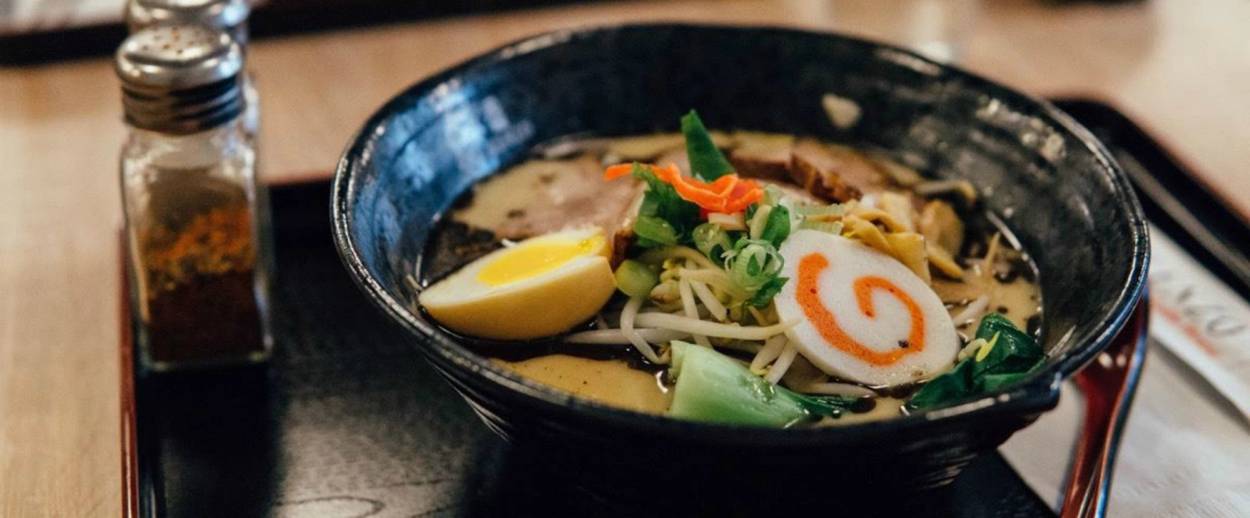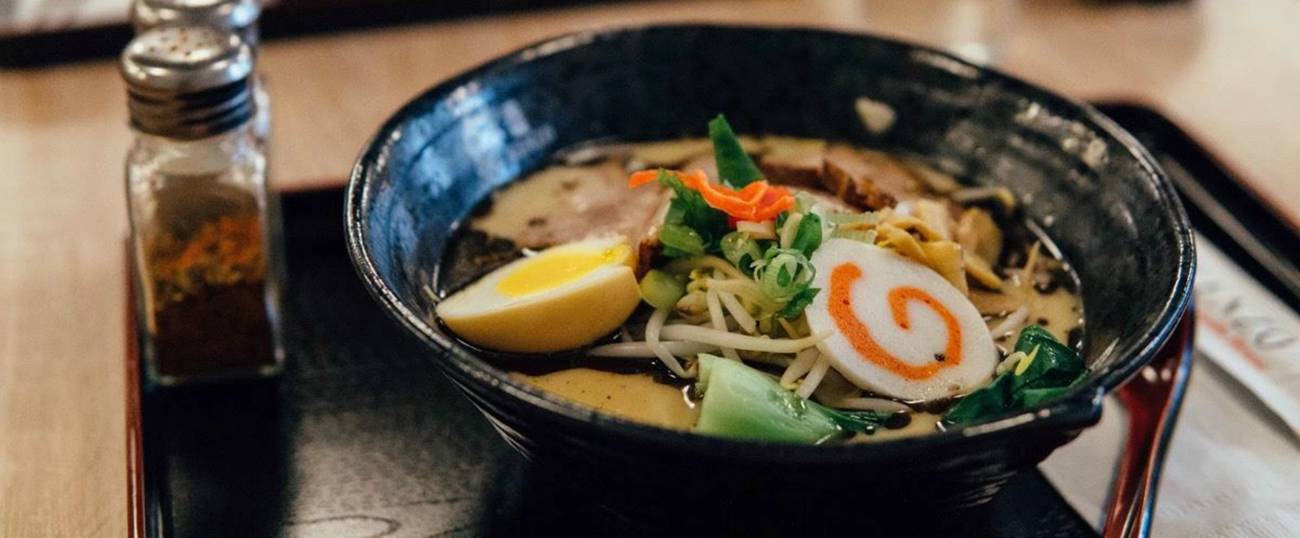New York Welcomes Its First Kosher Ramen Restaurant
Making the popular dish delicious even without seafood and pork




Until a few nights ago, I was a ramen newbie. Well, that is not entirely true. I have slurped plenty of bowls (or more often mugs) of instant ramen— the sodium-loaded convenience food favored by college students, and which only faintly resembles the actual Japanese noodle soup. I have also sampled plenty of vegetarian takes on classic ramen—a dish that has won over New York City’s (and much of the rest of America’s) restaurant scene in recent years. But as someone who abstains from non-kosher meat, I had never experienced the real thing: A nourishing bowl of meat-based broth brimming with wheat noodles and seasonal vegetables. That all changed a few days ago when I visited Boru Boru.
Located on New York’s Upper West Side, Boru Boru, which opened in mid-February, offers the city’s first kosher-certified ramen. Instead of the pork and seafood that often provides ramen’s base flavors, their broths are made from chicken, soy sauce, miso, and other umami-laden flavor builders. And they are really good—complexly flavored, deeply savory, and well-balanced.
Unlike many kosher restaurants, which abide by a “more is more” approach to menu planning, Boru Boru’s menu shows merciful restraint. On offer: A well-curated shortlist of starters and mains (think chicken and ginger dumplings with ponzu and oxtail fried rice) and four types of ramen, including two vegetarian options. I, needless to say, was not there for the meat-free version. Instead, my bowl of pastrami ramen included several thick cut medallions of the spiced, slightly smoky beef atop a bowl of white miso-based broth and tender noodles. The soup was garnished with shredded napa cabbage, pea shoots, and pickled mustard seeds.
“Is our ramen the most authentic as far as ingredients go when we are unable to use pork and seafood? Absolutely not,” said Boru Boru’s owner, Daniel Zelkowitz. “But is it possible to make an outstanding bowl of ramen following the kosher laws? Absolutely.”
Zelkowitz, 27, who is Orthodox and a native New Yorker, started his own catering company at 18. From the beginning, he took an avant garde approach to kosher cuisine catering high end Shabbat dinners and parties. After graduating from college, Zelkowitz trained at the Center for Kosher Culinary Arts, the now-closed kosher culinary school in Brooklyn. He also took a job with a New York City-based hospitality group, where he helped open several (non-kosher) eateries and sports bars. “It was interesting because, of course, I couldn’t taste any of the food,” he said. Instead, he gained the experience needed to transform his self-described “entrepreneurial spirit” into something entirely new in the world of kosher dining.
“For years, kosher restaurateurs have been opening up the same few concepts over and over,” Zelkowitz said. “There is the pizza place that for some reason also serves sushi. There’s schnitzel, and burgers, and the exorbitantly expensive steakhouse.” Zelkowitz turned to ramen out of what essentially amounts to culinary FOMO. While walking around the East Village with his wife, Zelkowitz said they would notice long lines outside non-kosher ramen restaurants, and wish they could go in. “I went the ramen route because I really wanted to eat it,” he said.
Out of necessity, as well as philosophy, Boru Boru makes many of its ingredients—from the ramen broth to chili oil—from scratch. Zelkowitz credits chef Eric Vargas-Bromberg, who has worked at some of New York City’s top kitchens (including the Michelin-starred Aldea) as the mastermind behind Boru Boru’s ramen. “He went to Yeshiva University with me, but is not religious,” he said. So while Vargas-Bromberg has tasted a wide array of New York City’s non-kosher ramen offerings, he also deeply understands the laws of kashrut and can serve as a bridge between both worlds. “Eric is the real rockstar,” Zelkowitz said.
Since opening, Zelkowitz estimated that close to 30 percent of diners are either not Jewish or not openly observant. They have also had halal-observant Muslim customers who want to try ramen while avoiding pork. But even with Boru Boru’s early successes, it is too early to say whether their core kosher customer base will consistently turn out for an unfamiliar dish and dining concept. “Some diners come in expecting us to serve sushi, burgers, or even General Tso’s chicken,” Zelkowitz said. “They are used to the idea that a kosher restaurant is supposed to have everything.”
Still, Zelkowitz plans to stick with his “unorthodox” approach to kosher dining: producing a shorter list of dishes, but doing them exceptionally well. “We will rotate ingredients seasonally to keep things interesting and swap in lamb-based dishes in the spring and cold ramen in the summer,” he said. “We want to both help educate kosher customers, and give them a reason to keep coming back.”